
Spencer Mizen: It's safe to say that when writing a history of the Second World War, you're entering a pretty crowded field. So what does your new book, Command, bring to the party?
Al Murray: One of the things that's striking about the Second World War is that the Allies get off to a terrible start. And then, at the end, they won a crushing, total victory. How on Earth did that happen in six years? That's the question I wanted to answer in this book.
The answer people often give is: "Well, it's because of industry, and it's a war of engines." That's basically what Stalin said. And, to an extent, he was right. You've got three Allied economies bigger than the German economy, and those economies were able to use their abundance of machinery to batter Germany into submission.
But the thing about pummelling people into submission is you've still got to figure out how to do it and then you've still got to persuade people to do it. You've got to have the right people in place to do it. You've got to organise your men, you need to figure out how to use intelligence and react to what's unfolding in front of you. And that's the bit I've tried to write about. At the beginning of the war, the Allies were hopeless at all this; by the end of the conflict, they were really, really good at fighting. They didn't win this war simply by muddling through and outgunning the Germans. I think they learned lessons. And I've tried to trace that transformation via 10 commanders - from the generals at the top of the food chain, all the way down to a lieutenant fighting alongside his men on the front line.
Command: How the Allies Learned to Win the Second World War
By Al Murray (Headline, 352 pages, £20)
Diese Geschichte stammt aus der December 2022-Ausgabe von BBC History UK.
Starten Sie Ihre 7-tägige kostenlose Testversion von Magzter GOLD, um auf Tausende kuratierte Premium-Storys sowie über 8.000 Zeitschriften und Zeitungen zuzugreifen.
Bereits Abonnent ? Anmelden
Diese Geschichte stammt aus der December 2022-Ausgabe von BBC History UK.
Starten Sie Ihre 7-tägige kostenlose Testversion von Magzter GOLD, um auf Tausende kuratierte Premium-Storys sowie über 8.000 Zeitschriften und Zeitungen zuzugreifen.
Bereits Abonnent? Anmelden

Viking mussels
ELEANOR BARNETT digs into archaeological research to recreate a Viking-cum-AngloSaxon seafood dish from medieval York
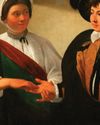
Fingers, frog's and fairies
Fortune telling was all the rage in the 16th and 17th centuries, and practitioners would stop at nothing to tap in to the supernatural. Martha McGill tells a story of Highland seers, tarot cards and encounters with the spirit world
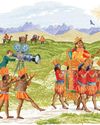
Nothing matches being with Alexander the Great on foot in the Hindu Kush
AT OUR LITTLE FILM COMPANY, MAYA VISION, we recently took the decision to digitise all of the rushes of our key films so that we could dispose of hundreds of boxes of tapes that had been kept in storage, throwing out stuff we thought we would never need again.

Library of the dead
Highgate Cemetery, created as a fashionable resting place for wealthy Victorian dead, is a veritable who's who of London's great and good. PETER ROSS roams the avenues of this most atmospheric necropolis
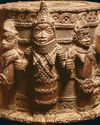
Slavery, exploitation and racism. These tragedies have long dominated histories of Africa. But there's another way to tell this story. And it's one that puts Africans right at the centre of their continent's extraordinarily rich and vibrant past
An 1414, in the Chinese city of Nanjing, a giraffe caused a stir. Amid a crowd of shocked, noble spectators, an official, leading the creature via a rope tied round its face, presented it to China's Yongle emperor. His officials said it was a qilin - an auspicious unicorn - which his sage governance had made appear.

England's forgotten hero
When the Hundred Years' War was reaching a climax, one man was fighting tenaciously to secure the English claim to the French crown. So why, asks Joanna Arman, is Henry V's formidable brother, John, Duke of Bedford, not better known?
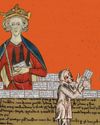
HENRY III AND THE MAGNA CARTA THAT MATTERED
King John's sealing of a charter at Runnymede in 1215 is one of the most feted moments of the Middle Ages. Yet, writes David Carpenter, it was the charter issued by his son 10 years later that became fundamental to England's history

Gutenberg publishes a pioneering new book
‘The printing press triggers an information revolution
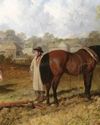
How empire ruptured rural Britain
We know that enslaved Africans and their descendants suffered in the distant colonies of empire. But, as Corinne Fowler explains, the colonial system also had dire impacts on people in the countryside of the 'motherland'
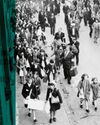
"I FELT VERY ALONE IN A WORLD GONE HORRIBLY MAD"
It was a moment of possibilities, dislocation and dread. Dan Todman tells the story of the 1.5 million urban Britons evacuated to the countryside at the start of the Second World War